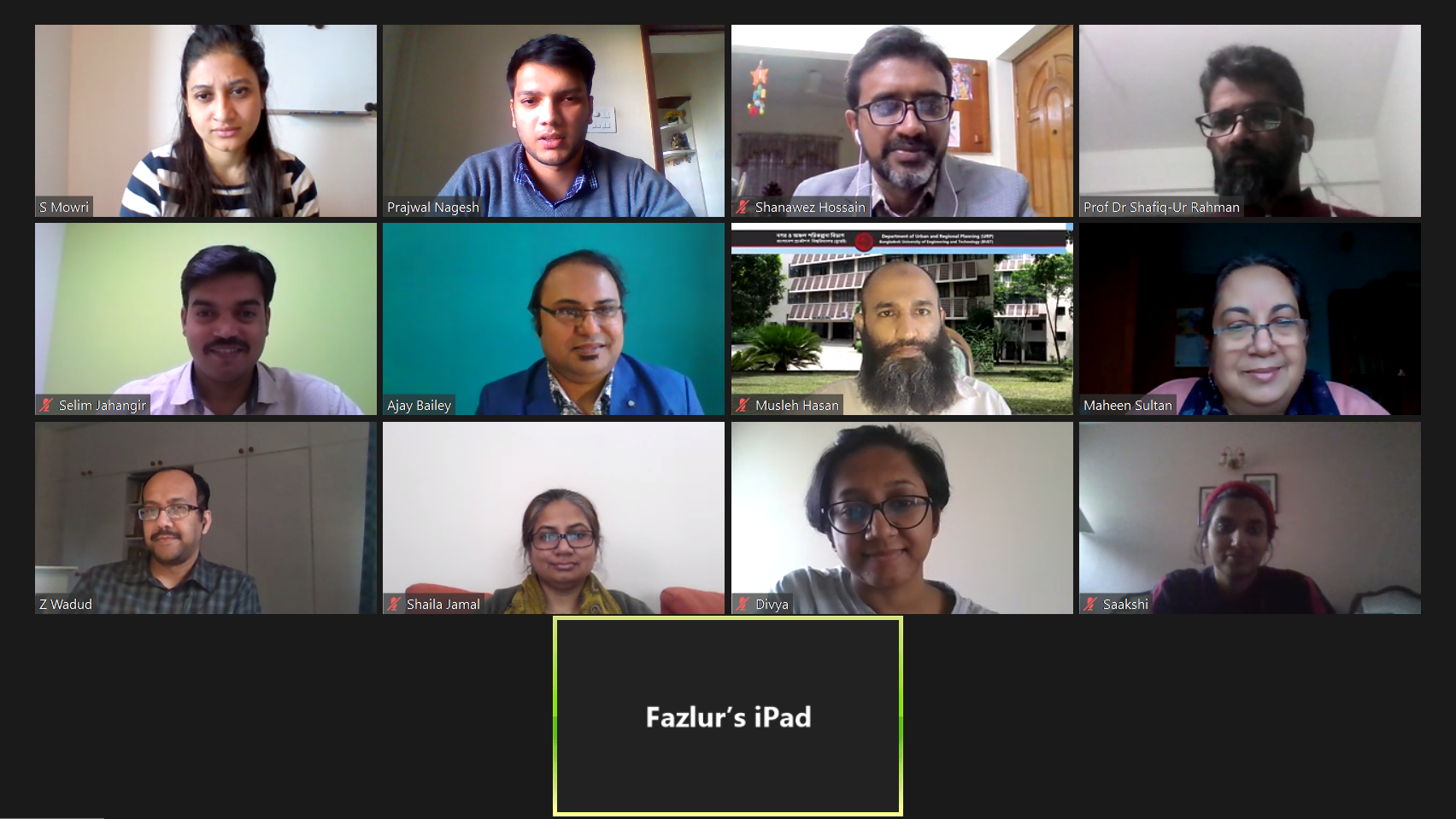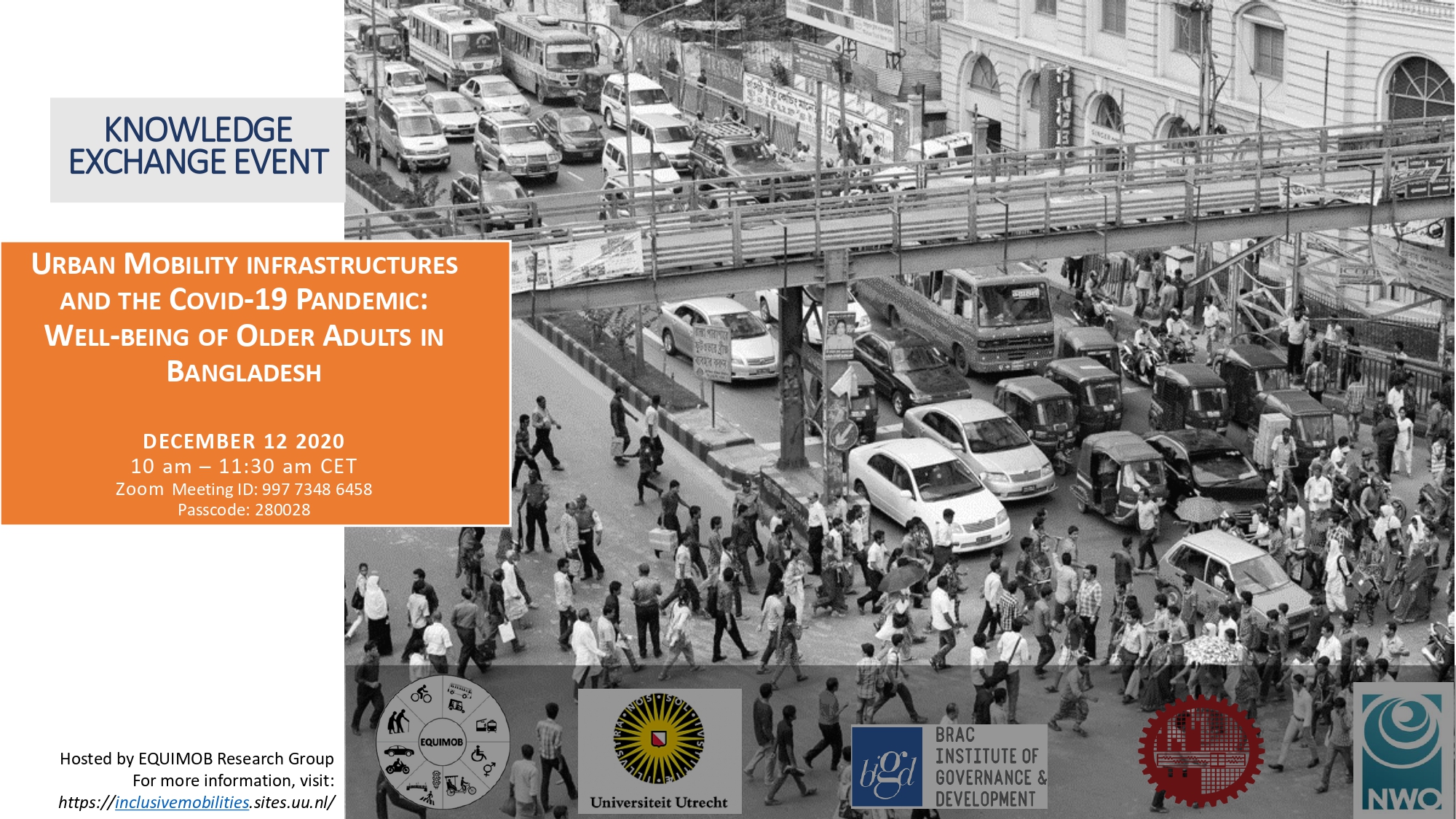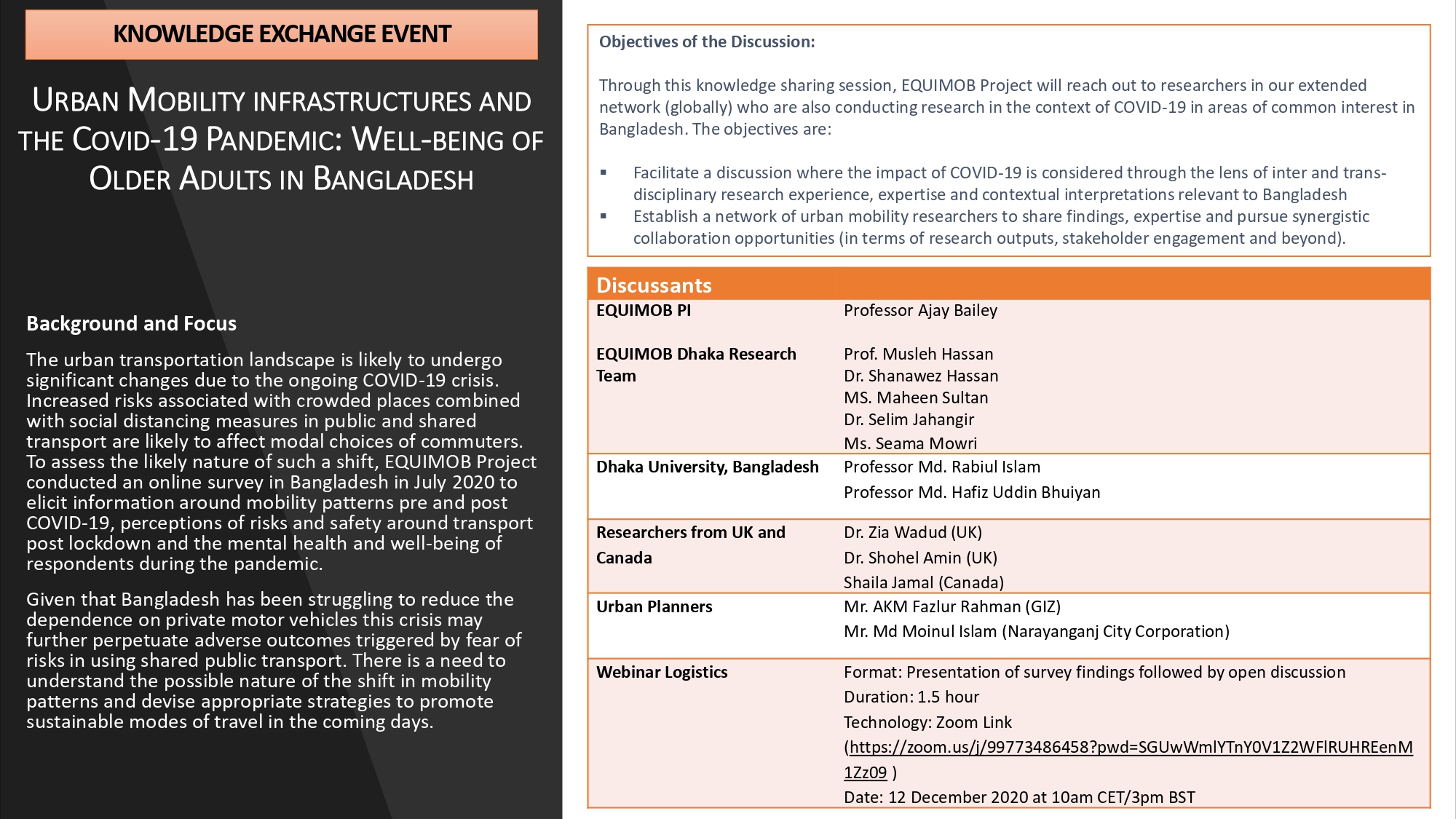Agenda
Knowledge Exchange Event: Urban Mobility Infrastructures and the COVID-19 pandemic: Wellbeing of Older Adults in Bangladesh
The urban transportation landscape is likely to undergo significant changes due to the ongoing COVID-19 crisis. Increased risks associated with crowded places combined with social distancing measures in public and shared transport are likely to affect modal choices of commuters. To assess the likely nature of such a shift, EQUIMOB Project conducted an online survey in Bangladesh in July 2020 to elicit information around mobility patterns pre and post COVID-19, perceptions of risks and safety around transport post lockdown and the mental health and well-being of respondents during the pandemic.
On 12th December 2020, researchers from the EQUIMOB Dhaka team held a knowledge exchange event with academics from the UK, Canada and Bangladesh, including urban planners from GIZ and Narayanganj City Corporation in Bangladesh, working in the space of COVID-19 and mobility in Bangladesh. The event started with presentations from the EQUIMOB researchers [Dr. Selim Jahangir and Seama Mowri] on the online survey findings. There was a follow-up round of question-answers on considerations of the age of older adults, opportunities for employing quantitative modelling techniques and considering bias and heterogeneity in sampling.

Screenshot from the online meeting
The discussion hinged on understanding the impact of COVID-19 through the lens of inter and trans-disciplinary research experience, expertise and contextual interpretations relevant to Bangladesh. Dr. Shohel Amin from Coventry University, spoke about his project exploring micro-mobility solutions (bicycle, electric wheelchairs) as a service to fill in gaps created by COVID, and welcomed potential collaboration. Professor Shafiq-Ur-Rahman from Jahangirnagar University shared his experiences of conducting an online survey in the pandemic for a comparative four-country research study on older persons mobility.
The event ended with identifying a network of stakeholders in urban mobility research such as HelpAge, Nirapod Shorok Chai and Bangladesh Institute of Planners, and the need to deepen stakeholder engagement in the pursuit of synergistic collaboration opportunities.



